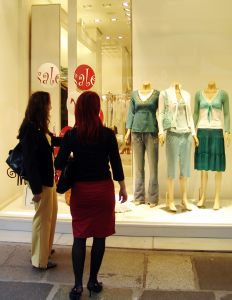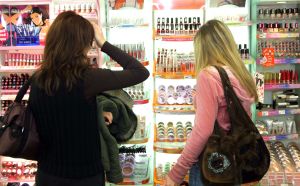 |
Everyone is busy shopping at this time of the year–including the criminals. There are a variety of insurance protections for some of the possible loss situations we face while gathering gifts for friends and family.
Auto comprehensive coverage, might help cover the loss if your car window is broken, and it may even cover the loss of some of the gifts stolen. Your credit card company will work with you in the event someone finds your plastic left at a check stand, or on the ground at the mall. Your homeowners insurance may help if someone follows you home only to pull a Home Envision robbery.
It’s nice to know there may be some insurance protection in the event of an insured loss. But the claim would be paid only after police report filed, the deductible is paid, and the pain of submitting a claim is done. Not so much fun and a great way to ruin the festive spirit of giving.
 |
I would rather enjoy my shopping and take prevention measures to help keep the holiday season joyous. This is the time of year when busy people can become careless and vulnerable to theft and other holiday crime, and criminals are counting on this fact. So here are some Safe Holiday Shopping Tips that might help you be more careful, prepared and aware during the holiday season:
- Whenever possible shop during daylight hours.
- Remember the “Buddy System” while shopping and try to take a friend especially if you must shop at night.
- Dress comfortably and casually and leave the “Bling-Bling” at home. You might love that beautiful watch or special jacket as much as the thief does.
- Don’t carry anything, including a purse or wallet, if you can help it. It’s very easy to leave it somewhere, or have it stolen by a pickpocket. Purses and wallets are prime targets of criminals in crowded shopping areas, transportation terminals, bus stops, on buses and other mass transit.
- Carry identification with you in your pocket, or make a photocopy and keep it in your shoe, in case something happens and you’re unable to communicate.
- Only bring necessary cash, checks and/or the credit card you plan to use.
- Avoid carrying large amounts of cash, and if you are using cash don’t flash it around. When I shop with cash, I split it up and keep smaller amounts in my front pockets.
- Stay alert and aware of the surroundings, and anyone.
- Pay for purchases with a check or credit card when possible. There are often special insurance benefits for transactions made with credit cards.
- Don’t overload yourself with bags and packages. Part of being aware of your surroundings is clear visibility. Too many things in your arms limit your freedom of motion and leads to trips, falls or other strains.
- Beware of strangers approaching you. This is the time of year, “con-artists” try any method they can to distract you with the intention of taking your money or belongings.
- Don’t buy gold chains from a guy selling them in the shopping center parking lots. This happened to me today! A man was approaching customers with a “Deal” that was too good to be true. Either his gold chains were stolen or he was looking for someone to mug! I walked the other direction and didn’t make eye contact. It’s these kinds of situation were I pretend to be deaf, blind and dumb. We don’t owe people selling things in the parking lot courtesy–even if it is a great deal and they have starving children to feed! Refer anyone with a claim of poverty to the charities in your community.
Stay tuned for Safe Holiday Shopping and Your Car in the next Blog.
![]() Related Blogs:
Related Blogs:
- Auto Insurance Policies 101: Optional Coverage-Comprehensive
- Facts about home invasion And Protecting Your Home and Family.
Photo credits for this blog entry:  (no use restrictions for these photos)
(no use restrictions for these photos)
Glossary of Insurance Terms:
A | B | C | D | E | F | G | H | I | J-K | L | M | N | O | P | Q-R | S | T | U-V | W-Z
Families.com Blogs are for informational purposes only. Families.com assumes no responsibility for consumer choices. Consumers are reminded that it is their responsibility to research their choices properly and speak to a certified insurance professional prior to making any decision as important as an insurance purchase.

